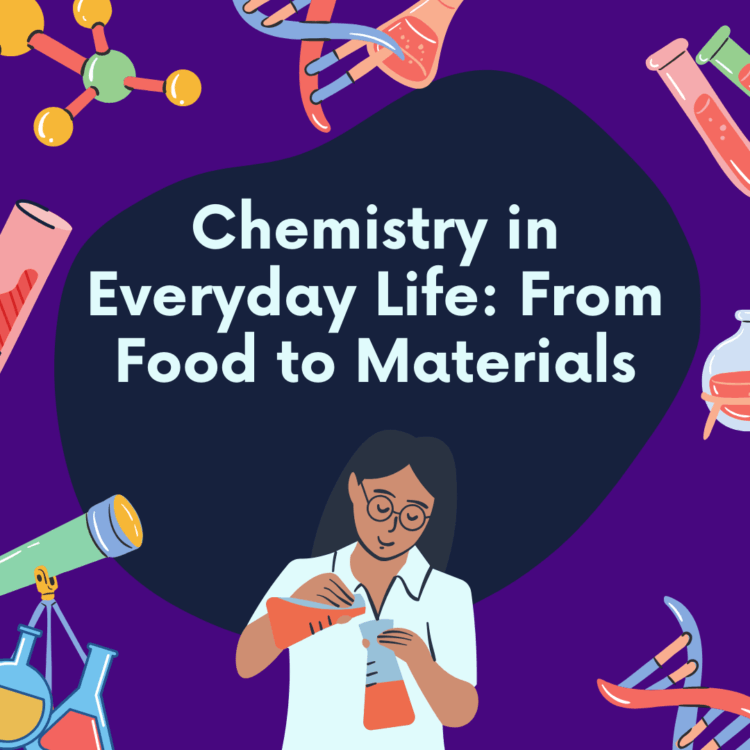Chemistry plays a crucial role in our everyday lives, impacting everything from the food we eat to the materials we use. Here’s a look at how chemistry is involved in various aspects of our daily existence:
1. Food Chemistry:
Cooking and Flavor
Chemistry is fundamental in cooking. Maillard reaction and caramelization are chemical processes responsible for browning and flavor development in food.
Preservatives and Additives
Food chemistry helps create preservatives and additives to extend shelf life and improve taste.
Nutrition
Understanding the chemical composition of food helps determine nutritional value, including macronutrients and micronutrients.
2. Medicinal Chemistry:
Pharmaceuticals
Chemistry is central to drug development, from identifying active compounds to formulating effective medications.
Drug Interactions
Understanding how drugs interact with the body involves complex chemistry, including receptor binding and metabolic processes.
3. Materials Science:
Polymers and Plastics:
Chemistry enables the creation of various polymers and plastics used in everyday products, such as bottles, packaging, and synthetic fibers.
Metallurgy
Understanding the properties of metals and alloys is critical for designing materials used in construction and manufacturing.
Nanotechnology
Chemistry plays a pivotal role in developing and manipulating nanomaterials with unique properties.
4. Cleaning and Hygiene:
Surfactants
Detergents and soaps use surfactants to break down and remove dirt and oils, facilitating cleaning.
Disinfectants
Chemical disinfectants help kill harmful microorganisms to maintain hygiene and prevent infections.
5. Cosmetics and Personal Care Products:
Formulation
Chemistry is essential in formulating cosmetics and personal care products, ensuring safety, stability, and effectiveness.
Emulsions and Colloids
Chemistry guides the creation of stable emulsions and colloidal systems used in lotions and creams.
6. Energy Production:
Fossil Fuels:
The chemistry of combustion and energy release is central to the use of fossil fuels for electricity generation and transportation.
Renewable Energy:
Chemistry underpins the development of solar cells, batteries, and fuel cells used in clean energy technologies.
7. Water Purification:
Chemical Treatment
Water purification processes rely on chemistry, including coagulation, flocculation, and disinfection.
Desalination
Chemistry is involved in desalination methods, such as reverse osmosis, to make seawater potable.
8. Environmental Chemistry:
Pollution Control:
Chemistry helps identify and mitigate pollutants in the air, water, and soil, supporting environmental conservation efforts.
Waste Management:
Chemical processes are used in waste treatment, recycling, and disposal.
9. Textiles and Fabrics:
Dyeing and Printing
Chemistry is essential in the dyeing and printing of fabrics, providing vibrant colors and patterns.
Fiber Chemistry
Understanding fiber properties aids in the creation of textiles for various applications.
10. Consumer Products:
Adhesives and Sealants
Everyday items like glues and sealants rely on chemical bonding principles.
Ink and Pigments
Chemistry contributes to the formulation of inks used in writing, printing, and art.
Chemistry, therefore, plays a multifaceted role in our daily lives, contributing to advancements in various industries, enhancing product quality, and improving our overall quality of life. Understanding these chemical principles can help us make informed choices and promote sustainable and healthy living.










No Comments
Leave Comment